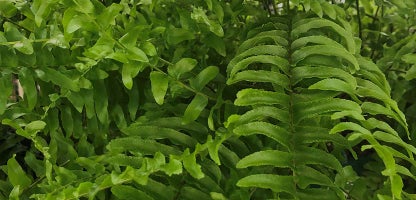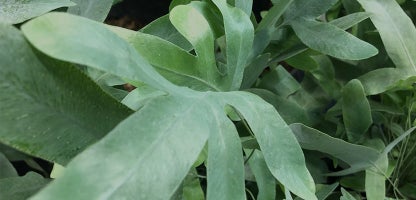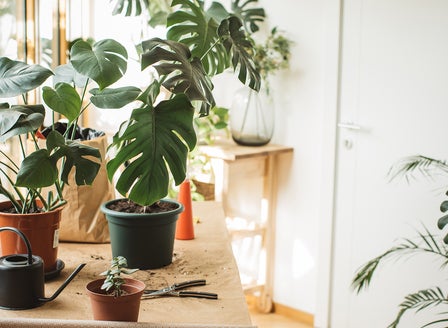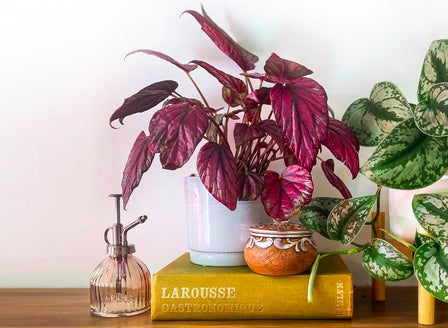Indoor Ferns provide us with a soft luxurious texture, pops of bright greens and natural structure beautifying your indoor garden space. They are versatile from small delicate ones for the table, to large cascading types which look great in a hanging basket, there is one that will suit every position in your home.
Planting Calendar
Prepare
Position
There are a number of different Indoor Ferns available, requiring various levels of light and moisture. Maidenhair Fern suits a cool low light position away from drafts, ideal for the bathroom. Boston ferns require a well lit position out of direct sun. Ideal for a hanging option. Button Fern looks good in a pot sitting on a table, preferring good indirect light.
Soil
When planting indoors, plant into Kings House Plant Mix.
Plant
Depending on the variety, indoor ferns will need repotting once you can see roots at the bottom of the pot. Repot in spring into a pot at least 5cm larger than the current one, re plant into Kings House Plant Mix. Water in well after potting.
Care
Watering
Ferns generally like to be kept moist at all times. Do not let the roots sit in water as this may cause them to rot. But, do not let them dry out as the leaves will dry up turn brown and go crispy. Even moisture is key with ferns. Misting the fronds also helps.
Feeding
Feed regularly with Kings House Plant Liquid Food as per instructions on the packet.
Spraying
Aphids, Scale and Mealy bug can infest ferns. Spray with Groventive Garden to keep under control if needed.
Pruning
Generally ferns require very little pruning. Prune only to remove and brown leaves.
General Care
When using sprays, chemicals or fertilisers always read the label and follow the instructions. Apply sprays in the evening to avoid harming beneficial insects.
Expert Tip
Many Indoor Ferns can be grown outdoors in a shaded position.
Tip
Small ferns are great for use in terrariums, Maidenhair ferns being the most popular.
Top Varieties

Adiantum (Maidenhair Fern)
The most popular variety by far, with its delicate lacy foliage it is well suited for use in terrariums and for moist conditions like bathrooms.

Nephrolepis (Boston Fern)
This beauty look fantastic when planted into a hanging basket.

Phelbodium (Blue Star Fern)
A real stunner with its antler like fronds that are a silver, gray, blue colour, it is hardy and forgiving. Thriving in drier and less humid environments.
Frequently Asked Questions
How often should I water my indoor fern?
Ferns generally like to be kept moist at all times. Do not let the roots sit in water as this may cause them to rot. But, do not let them dry out as the leaves will dry up turn brown and go crispy. Even moisture is key with ferns. Misting the fronds also helps.
Do indoor ferns need direct sunlight?
There are a number of different Indoor Ferns available, requiring various levels of light and moisture. Maidenhair Fern suits a cool low light position away from drafts, ideal for the bathroom. Boston ferns require a well lit position out of direct sun. Ideal for a hanging option. Button Fern looks good in a pot sitting on a table, preferring good indirect light.
How can I increase humidity for my indoor fern?
Increase humidity by misting the fern regularly, placing a humidity tray with water and pebbles under the pot, or using a humidifier in the room.
Why are the leaves of my fern turning brown?
Brown leaves on a fern can be caused by low humidity, overwatering, underwatering, or too much direct sunlight. Check your watering routine and humidity levels to correct the issue.
How do I prune my indoor fern?
Generally ferns require very little pruning. Prune only to remove and brown leaves.

